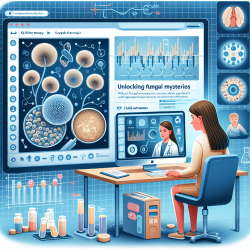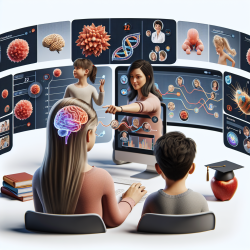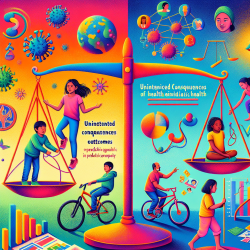Introduction: A Surprising Connection
At first glance, the study of gene duplication in fungal pathogens might seem far removed from the world of speech-language pathology. However, the research titled "Altered patterns of gene duplication and differential gene gain and loss in fungal pathogens" offers intriguing insights that can be applied to our field. By understanding how these biological processes work, we can draw parallels to how we approach therapy, particularly in terms of adaptation and the importance of tailored interventions.
Understanding Gene Duplication
The research highlights how gene duplication contributes to the evolution of fungal pathogens. This process involves the creation of additional copies of genes, which can lead to new functions and adaptations. In the context of fungal pathogens, these adaptations often relate to increased virulence and the ability to infect hosts. For speech therapists, this concept can be translated into the importance of adaptability and customization in therapeutic approaches.
Data-Driven Decisions in Therapy
One of the key takeaways from the research is the importance of data-driven decisions. The study uses extensive genomic data to understand patterns of gene duplication and loss. Similarly, in speech therapy, we must rely on data and evidence-based practices to inform our interventions. By collecting and analyzing data on a child's progress, we can adjust our strategies to better meet their individual needs, much like how fungal pathogens adapt to their environments.
Encouraging Further Research
The research also underscores the need for ongoing investigation and exploration. Just as scientists continue to study the genomic intricacies of fungi, speech therapists should remain committed to lifelong learning and research. This commitment ensures that we are always equipped with the latest knowledge and techniques to provide the best possible outcomes for our clients.
Practical Applications for Speech Therapists
- Adaptability: Like gene duplication leading to new functions, therapists should be flexible and open to trying new methods to achieve desired outcomes.
- Customization: Tailor therapy plans to the unique needs of each child, similar to how pathogens adapt to different hosts.
- Data Utilization: Regularly assess and use data to refine therapy approaches, ensuring they are effective and evidence-based.
Conclusion: A Call to Action
While the study of fungal pathogens may seem unrelated to speech therapy, it offers valuable lessons in adaptability, data-driven decision-making, and the importance of continuous research. By embracing these principles, we can enhance our practice and ultimately improve outcomes for the children we serve.
To read the original research paper, please follow this link: Altered patterns of gene duplication and differential gene gain and loss in fungal pathogens.










